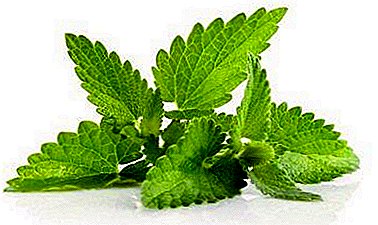 Pineapple is a tropical herb that belongs to the bromeliad family. This is a terrestrial plant with a thorny stem and leaves. The leaves grow to 80 cm in length, broadly linear, spiny teeth, covered with a thick epidermal layer. After the complete formation of a leaf rosette, a long peduncle is formed from it, richly covered with flowers. Flowering lasts two weeks, after which there is a powerful stems, in form resembling a cone.
Pineapple is a tropical herb that belongs to the bromeliad family. This is a terrestrial plant with a thorny stem and leaves. The leaves grow to 80 cm in length, broadly linear, spiny teeth, covered with a thick epidermal layer. After the complete formation of a leaf rosette, a long peduncle is formed from it, richly covered with flowers. Flowering lasts two weeks, after which there is a powerful stems, in form resembling a cone.
As ripening pineapples are harvested. They can be used fresh, in the form of juices. Pineapple fruits are dried, canned. Thanks to the fact that many nutrients are found in pineapple, this fruit is popular all over the world. There are many recipes in cooking with this fruit, as well as it is used in cosmetology, dietology and as a means to improve digestion. What is contained in the pineapple, how it affects the body - all of this will be discussed further.
Did you know? Pineapples do not grow on palm trees, as many believe. In fact, it is a perennial grass, the leaves of which stick out from the ground, and in the center of them is a wonderful fruit - pineapple.
Chemical composition: what contains pineapple
 Pineapple pulp contains many different substances. 85% of this tropical fruit consists of water, and 15% of monosaccharides (glucose, sucrose, fructose). There are also citric, tartaric and malic acids in pineapple and a number of organic acids.
Pineapple pulp contains many different substances. 85% of this tropical fruit consists of water, and 15% of monosaccharides (glucose, sucrose, fructose). There are also citric, tartaric and malic acids in pineapple and a number of organic acids.
Pineapple fruit is rich in trace elements such as calcium, potassium, iodine, zinc, copper, magnesium, manganese and iron. Most of the presented range of trace elements in the fruit contains potassium and manganese - up to 321 mg.
Did you know? Daily consumption of a cup of pineapple juice provides the human body with 75% of the required manganese, which very well affects the condition of the bones.
The benefits of fruit is also provided by the presence of vitamins. Here are some vitamins contains pineapple: A, B, B2, B12, E, C, PP, beta carotene. Also, the plant contains some plant enzymes. Dietary fiber is also present in pineapple.
Nutritional value of the product
Pineapple - low-calorie fruit. Per 100 grams of product accounts for:
- 13.12 g carbohydrates;
- 0.54 g of proteins;
- 0.12 g of fat.
Useful properties of pineapple
 The beneficial properties of pineapple for the body are provided by its trace elements. It has already been mentioned that manganese has a beneficial effect on the human skeleton. Potassium contributes to the normal functioning of the nervous and cardiovascular systems.
The beneficial properties of pineapple for the body are provided by its trace elements. It has already been mentioned that manganese has a beneficial effect on the human skeleton. Potassium contributes to the normal functioning of the nervous and cardiovascular systems.
Pineapple is useful for people suffering from thrombosis and thrombophlebitis, as it is able to thin the blood. It is also necessary for diseases of the kidneys and blood vessels. Pineapple helps to remove edema, cleans the walls of blood vessels from fat deposits. Therefore, it can be considered a preventive measure against heart attacks, strokes.
What is useful in pineapple is its ability to reduce joint and muscle pain. It suspends the development of atherosclerosis and disorders in the pancreas. Inflammatory diseases such as sore throat, sinusitis, pneumonia, pleurisy, pyelonephritis, and some others fall back on eating pineapple.
Studies by some scientists show that a highly concentrated pineapple extract helps in the treatment of cancer. Substances contained in pineapple tend to bind free radicals, thereby ensuring the prevention of cancer.
How to use pineapple
 It is believed that the most efficient eating pineapple on an empty stomach. The bromelain contained in the fruit, when combined with food, does not show its beneficial properties. In combination with food, it only improves the fermentation of the body.
It is believed that the most efficient eating pineapple on an empty stomach. The bromelain contained in the fruit, when combined with food, does not show its beneficial properties. In combination with food, it only improves the fermentation of the body.
The peoples of India decided to use not only the fruits of pineapples, but also the leaves. Juice is extracted from the leaves, which is used as an anthelmintic.
Application for improved digestion
Many do not know about all aspects, what is useful for the pineapple body and how it is used to improve well-being. This wonderful delicious fruit benefits the body, in particular, it is used to improve digestion.
Pineapples are rich in fiber, which effectively cleanses the body and contributes to the processes of digestion.
How to use pineapple in dietetics
Pineapple is a low-calorie and nutritious product and is used in dietetics to combat excess weight. Pineapple has beneficial properties due to the presence in the composition of the plant enzyme bromelain, which breaks down complex proteins - in fish, meat, legumes.
 In dietetics, fasting pineapple days are practiced. In the period of diets, to speed up the metabolic processes, it is recommended to use pineapples. They are also a good source of vitamins of groups B and C.
In dietetics, fasting pineapple days are practiced. In the period of diets, to speed up the metabolic processes, it is recommended to use pineapples. They are also a good source of vitamins of groups B and C.
Pineapple is recommended to use in the morning with the observance of the daily norm.
Important! Excessive consumption of fresh pineapple can cause stomach upset and damage to the oral mucosa.
Pineapple and cosmetology
Due to what vitamins are contained in pineapple, minerals and trace elements, it can also be used in cosmetology. It is a part of tonics, lotions, scrubs, nourishing creams, anti-aging cosmetics. In the creation of anti-cellulite cosmetics pineapple extract is also often used.
Cosmetics based on pineapple have the following properties:
- moisturizing;
- nutrition;
- toning and vitaminization of the skin;
- antiedematous action;
- anti-inflammatory effect;
- cell renewal and regeneration;
- exfoliating effect;
- whitening skin color;
- smoothing wrinkles, rejuvenation;
- the fight against the appearance of cellulite, leveling skin texture;
- stimulation of subcutaneous fat splitting.
How to choose pineapple for consumption, storage of the product
The ability to choose the right pineapple is very valuable, because overripe or immature specimen has a completely different taste. Unripe pineapples are also harmful to health.
 The quality of the pineapple depends largely on how it was delivered. Ripe fruits are delivered by plane, they are tasty, but they cost a lot. Those pineapples that are delivered by land are loaded with green for transportation, and they go through a ripening process on the way. Such pineapples are not so fragrant and devoid of unique sweetness. There are several criteria by which the quality of a pineapple is evaluated:
The quality of the pineapple depends largely on how it was delivered. Ripe fruits are delivered by plane, they are tasty, but they cost a lot. Those pineapples that are delivered by land are loaded with green for transportation, and they go through a ripening process on the way. Such pineapples are not so fragrant and devoid of unique sweetness. There are several criteria by which the quality of a pineapple is evaluated:
- tops;
- crust;
- the pulp;
- aroma.
Crust. A delicious ripe pineapple is a bit soft and at the same time elastic crust. If there is a dent when pressed - this indicates that the fruit is overripe. Over-grown pineapple may be tasty, but it needs to be eaten quickly, as it will not be stored. If dark spots are visible on the peel, then this is a sign of over-ripe fruit that has begun to deteriorate. Immature pineapples are very firm to the touch.
 The flesh. The choice of pineapple is different from the choice of watermelons, and it is not accepted to incise it. But if the seller is ready to do this, you need to pay attention to the color of the pulp. The ripened pineapple has a rich golden yellow color. The unripe fruit has a pale, almost white flesh.
The flesh. The choice of pineapple is different from the choice of watermelons, and it is not accepted to incise it. But if the seller is ready to do this, you need to pay attention to the color of the pulp. The ripened pineapple has a rich golden yellow color. The unripe fruit has a pale, almost white flesh.
Did you know? You can try tapping to find out the ripeness of the fruit. The deaf sound is an indicator of ripeness and juiciness. An empty sound means the fruit is dry. Also, if a pineapple seems heavy in comparison to its volume, this is a sign of its juiciness..
Aroma. Buying pineapple, it is desirable to smell it. A good pineapple has a delicate, sweetish aroma. If the flavor is too rich, it means that the fruit is overripe and possibly rotten.
After the purchase it is important how this sweet fruit will be stored. Pineapples are usually stored at room temperature for no more than 10 days. A little green pineapple in such conditions will ripen, it will become softer, sweeter and juicier. If you store pineapple at a temperature below 7 degrees, it will lose its flavor. Therefore, it is possible to put in the fridge unless sliced fruit.
Ripe juicy pineapple at room temperature will start to rot. Such copies are best kept in the refrigerator for 2-3 days, not more than a week.
Side effects and contraindications
Despite the fact that pineapples are so good for the body, they can be harmful to health. First of all, you should monitor the amount of consumption of this fruit. If you eat too much pineapple, you may have an upset stomach.
Important! The acids in pineapple juice have a bad effect on tooth enamel. Therefore, do not abuse this drink.
People who have exacerbations of gastritis, stomach ulcers, increased secretory activity of gastric juice, should refrain from eating pineapple.
 Pregnant women should not eat pineapple for food, as it can, with frequent consumption, stimulate muscle tissue and keep them in good shape. And this may lead to abortion at an early period.
Pregnant women should not eat pineapple for food, as it can, with frequent consumption, stimulate muscle tissue and keep them in good shape. And this may lead to abortion at an early period.
Children under the age of 6 years are also undesirable to eat large quantities of pineapples, as irritation of the intestinal mucosa may occur.
Pineapple is a powerful allergen. Before use, it is better to find out if there is an intolerance to this product.
As in many other things, when eating pineapple you need to know when to stop. In the right proportions, this tasty fruit will benefit the body, and in excess it can be harmful. It is also important to choose a quality product in order to avoid unpleasant consequences and not to be disappointed in its taste.












